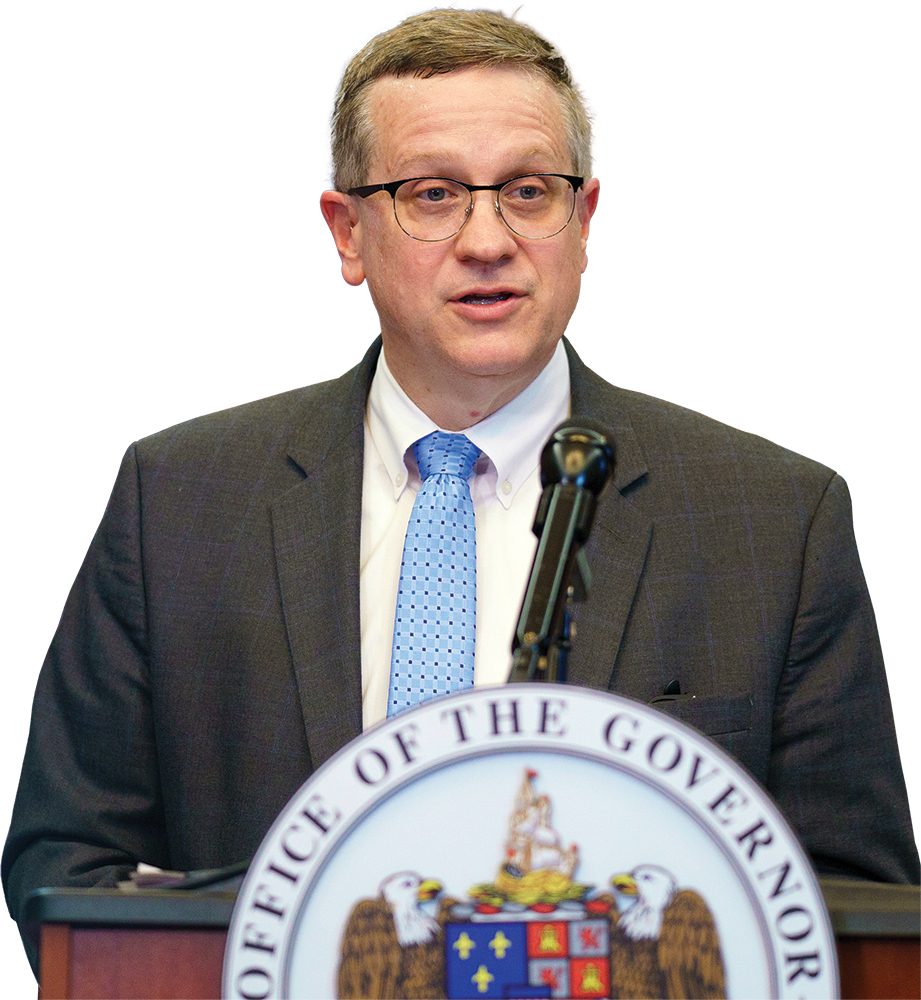Dr. Scott Harris has become a household name to many Alabamians as he leads, along with the governor, the state’s response to the COVID-19 pandemic. Harris has served as the 12th state health officer since February 2018, having previously served as area health officer for seven north Alabama counties. A graduate of Harding University in Arkansas, he attended medical school at UAB, where he completed a fellowship in infectious diseases. He earned a master’s degree in public health from the UAB School of Public Health in 2017, with a concentration in health policy. He practiced infectious disease medicine at Decatur General Hospital and Parkway Medical Center and was medical director at the Decatur-Morgan Community Free Clinic, a non-profit clinic offering health and dental care to low-income uninsured residents. He has also been part of many international medical missions to Central America, South America and Africa. Dr. Harris was kind enough to answer a few questions from Alabama Living. – Lenore Vickrey

Tell us a little bit about your growing up years.
I was born and raised in Talladega and graduated from Talladega High School. My parents still live in Talladega, where my father was a pharmacist and operated his own drug store for over 50 years before finally retiring. My mother is also retired now but was a registered nurse who worked for a time, among other jobs, at our county health department.
Is being a doctor what you always wanted to do, and why?
I had an uncle in Talladega who was a family physician and even as a young person, I wanted to go into medicine. I really enjoy being able to help others who are in need, and medicine allows an opportunity to connect with people in a way that is different from many other professions. Issues of health and safety are among the most important that people
can face, and it is a privilege to be able to help those who are seeking it.
What led you to pursue a fellowship in infectious diseases?
The specialty of infectious diseases (ID) is fascinating to me. ID appeals to me because of the variety of illnesses and disease processes that are involved, and because infections can occur in anyone at any time. ID is not a specialty that is focused on a single organ system or a single type of patient, and there are many other non-infectious illnesses that can
masquerade as infections, so there are always interesting puzzles to solve while you are trying to help those who are sick.
What caused you to pursue a career in public helath service, rather than private practice?
My career in ID had a lot of overlap with the work of public health. Much of my practice involved caring for patients with HIV, tuberculosis and sexually transmitted diseases, as well as vaccine preventable illnesses and disease outbreaks. Over my years in private practice, I had many opportunities to work closely with public health officials and always appreciated the work done on behalf of underserved groups and those without other access to medical care. While living in Decatur, I was part of a group that helped to establish a free medical clinic for low-income people, and I served as the volunteer medical director there for about 13 years. Public health is simply a good fit with my training but also with the issues that I care about.
Did you receive training in handling a pandemic? Did you ever expect to be on the front lines of dealing with a pandemic?
Public health has spent a great deal of time creating pandemic plans that include a number of other state agencies, health care facilities and community partners. These plans were put together initially after the H1N1 pandemic in 2009 and have been updated regularly. We have frequent tabletop practice events and occasionally have real world practice exercises that involve hospitals, nursing homes, first responders and others.
Still, this type of practice does not fully prepare us for the event we are experiencing now. None of us could have ever predicted the current outbreak, which has infected over 1 million people in our country alone and killed more Americans in the past two months than who died over the entire course of the Vietnam War. I certainly did not expect to be here in this position for this event, but fortunately have been able to work with true professionals in the Department of Public Health, the Alabama Emergency Management Agency, the Alabama National Guard, and many others who have been trained and prepared for this response.
Your job must be extremely stressful. How do you unwind at night?
My wife and I like to cook together and we are always looking for an interesting recipe to try. We grow vegetables and herbs on our property and try to use fresh ingredients whenever we can. We also enjoy spending time reading books or working together on jigsaw puzzles, and we make time on most days for walks around the neighborhood or to our nearby park, just for exercise and to spend time together.




